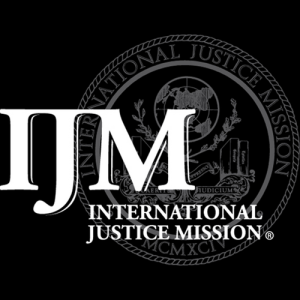Justice must have a standard.
Law and order—foundation stones of a just society—cannot exist without a transcendent measure. Christians believe doing what is right, what is good for people must come from righteousness. There is a need for doing good because bad exists. Evil often has the most awful consequences for those who are left unprotected from the good of justice. The poor, the disenfranchised, are the targets of violence because they often have no protector, no advocate. Law, order, and justice activists know that violence is the soil of poverty. Stopping violence against and providing justice for those who cannot protect themselves is the focus of the International Justice Mission (IJM).
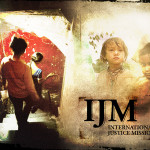 IJM’s mission for stemming violence against the poor focuses on enduring, systemic change. The threefold model for lasting, essential justice includes (1) collaborating with indigenous authorities on behalf of individual victims, (2) targeting programs which improve law enforcement processes in arresting crime, and (3) partnering with local governments to support and sustain justice gains.
IJM’s mission for stemming violence against the poor focuses on enduring, systemic change. The threefold model for lasting, essential justice includes (1) collaborating with indigenous authorities on behalf of individual victims, (2) targeting programs which improve law enforcement processes in arresting crime, and (3) partnering with local governments to support and sustain justice gains.
 In particular, the developing world is susceptible to violence against the poor. Sex trafficking, slavery, police brutality, sexual violence, and civil rights abuse are common, daily violations around the world. Children are exploited in the workplace, women are abused in sex trades, neighbors attack weaker neighbors, and police assault those unable to bribe. IJM rescues the casualty of brutality but also works to stop violence before it begins.
In particular, the developing world is susceptible to violence against the poor. Sex trafficking, slavery, police brutality, sexual violence, and civil rights abuse are common, daily violations around the world. Children are exploited in the workplace, women are abused in sex trades, neighbors attack weaker neighbors, and police assault those unable to bribe. IJM rescues the casualty of brutality but also works to stop violence before it begins.
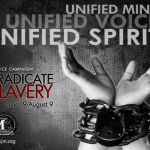 IJM exists to rescue victims, pursue lawbreakers, restore survivors, and strengthen justice systems. Global reach extends into more than 20 communities throughout Latin America, Africa, and Southeast Asia. But the work of justice is not sustained with theological or political platitudes. By its own count, “95% of IJM’s global team of lawyers, social workers, investigators and other professionals are at work in their own countries—leveraging their deep understanding of the local laws, language and culture in their communities.” [1] Multiple, updated stories on the IJM website do not simply trumpet successes for the organization but orchestrate a symphony of music breaking the silence of fear.
IJM exists to rescue victims, pursue lawbreakers, restore survivors, and strengthen justice systems. Global reach extends into more than 20 communities throughout Latin America, Africa, and Southeast Asia. But the work of justice is not sustained with theological or political platitudes. By its own count, “95% of IJM’s global team of lawyers, social workers, investigators and other professionals are at work in their own countries—leveraging their deep understanding of the local laws, language and culture in their communities.” [1] Multiple, updated stories on the IJM website do not simply trumpet successes for the organization but orchestrate a symphony of music breaking the silence of fear.
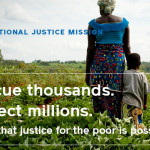 Harmonizing partnerships upholds the mission of protecting the poor. Religious groups as varied as Hindus, Muslims, and secularists praise IJM’s work. Media outlets such as The New York Times and National Public Radio support IJM through journalistic acclaim. Educational institutions champion, NGO’s (non-governmental organizations) aid, and churches sponsor IJM as a benefactor of the common good. The health and well-being of the world’s poorest and most violated have powerful friends advocating for virtuous life, separating victims from evildoers. IJM depends on the beneficence of patrons as poor crime victims depend on the work of IJM.
Harmonizing partnerships upholds the mission of protecting the poor. Religious groups as varied as Hindus, Muslims, and secularists praise IJM’s work. Media outlets such as The New York Times and National Public Radio support IJM through journalistic acclaim. Educational institutions champion, NGO’s (non-governmental organizations) aid, and churches sponsor IJM as a benefactor of the common good. The health and well-being of the world’s poorest and most violated have powerful friends advocating for virtuous life, separating victims from evildoers. IJM depends on the beneficence of patrons as poor crime victims depend on the work of IJM.
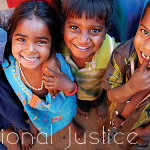 Like other non-profits whose labor cares for people, it is no surprise that The International Justice Mission has Christian roots. Nourished by Scriptural texts, biblical principles, Christian leaders, and an action-oriented think tank IJM is sustained by a transcendent source of justice. The fruit of justice depends on the root of righteousness. Justice flows from righteousness; the words are often paired in the Old Testament (Deut 32:4). But because justice is impossible from solely human origins, God’s mercy, His pardon is offered to humans (Rom 2:1-11). Here is the premise for IJM: social evil is overcome by good, the mercy of God, lived through truth-bearers who rescue those who cannot save themselves (Prov 24:11; 2 Cor 5:17-21).
Like other non-profits whose labor cares for people, it is no surprise that The International Justice Mission has Christian roots. Nourished by Scriptural texts, biblical principles, Christian leaders, and an action-oriented think tank IJM is sustained by a transcendent source of justice. The fruit of justice depends on the root of righteousness. Justice flows from righteousness; the words are often paired in the Old Testament (Deut 32:4). But because justice is impossible from solely human origins, God’s mercy, His pardon is offered to humans (Rom 2:1-11). Here is the premise for IJM: social evil is overcome by good, the mercy of God, lived through truth-bearers who rescue those who cannot save themselves (Prov 24:11; 2 Cor 5:17-21).
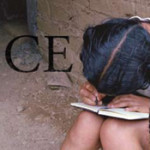 Clarion calls for serving the oppressed support the mission of the Institute for Biblical Justice which “serves to mobilize the global Church by joining the Holy Spirit in catalyzing a spiritual awakening to God’s passion for justice among Christian leaders.” [1]
Clarion calls for serving the oppressed support the mission of the Institute for Biblical Justice which “serves to mobilize the global Church by joining the Holy Spirit in catalyzing a spiritual awakening to God’s passion for justice among Christian leaders.” [1]
Law, order, justice, and grace depend upon a transcendent source as the violated poor depend on the effort of The International Justice Mission.
Mark’s essay is included in the upcoming Encyclopedia of Christianity in the United States (5 volumes, Rowman & Littlefield, copyrighted, 2016). Dr. Mark Eckel LOVES and SUPPORTS the work of IJM.
References and Resources
Haugen, Gary A. Just Courage: God’s Great Expedition for the Restless Christian. Downers Grove, IL: InterVarsity Press, 2008.
__________ and Victor Boutros. The Locust Effect: Why the End of Poverty Requires the End of Violence. New York, NY: Oxford University Press, 2014.
[1] The International Justice Mission. https://ijm.org/ Accessed 10 January 2015.

